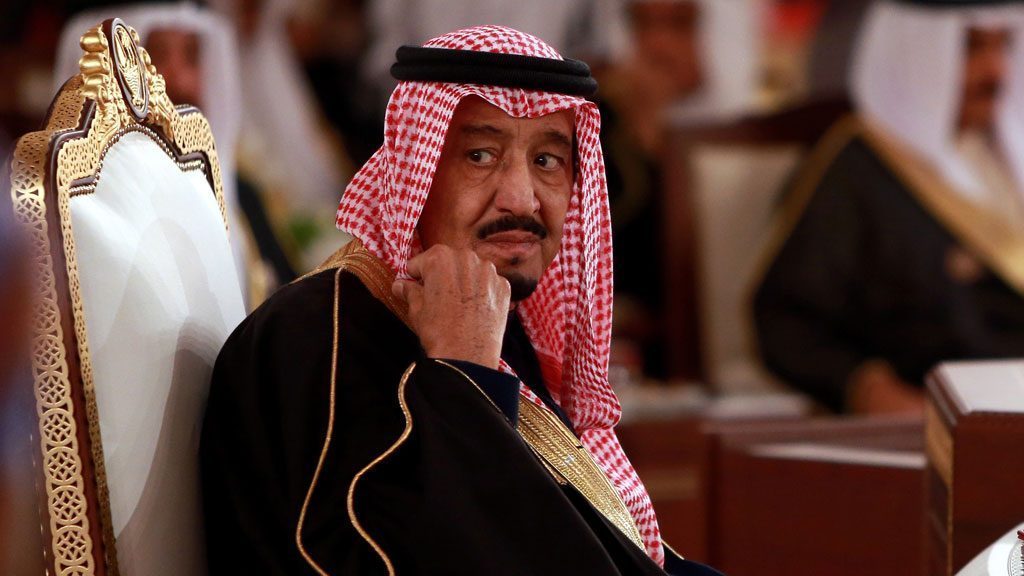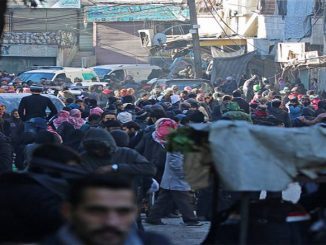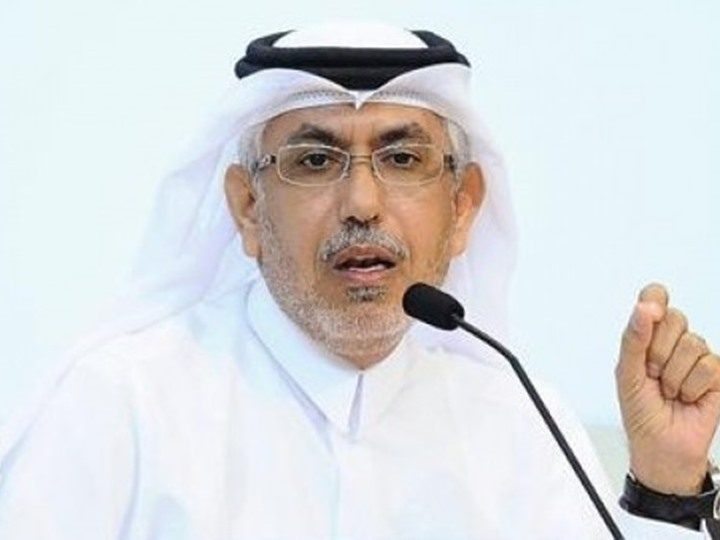
After losing its key advantage as a price maker in the oil market, Saudi Arabia is at risk of losing another key advantage: its role as a stable Middle East regime– advantages which form the foundation of its close ties with Washington.
For years, Saudi Arabia has enjoyed an important advantage. In the oil market that is, as the “swing oil producer” and price stabilizer for Middle East oil.
“As the largest (by far) oil producer in OPEC, Saudi Arabia has also played the role of the key ‘swing producer’ in the group, raising or lowering production to help stabilize prices or supplies on the international market” says oil expert Kevin Rooney. “While they certainly have their own agenda, the Saudis have always taken the long view. The importance of the US-Saudi relationship lies in the fact that we both recognize that actions taken by either party have geopolitical and economic consequences, and that moderation begets stability which, in turn, begets a level of economic growth which is far more predictable.”
That’s something that suited the US, as Saudi Arabia wouldn’t dare to change oil prices without authorization from its close American ally.
As a commentator put it in response to a previous piece here: “Middle East oil prices were always controlled by the US and Saudi Arabia would have never dared to change oil prices without the explicit authorization of the US. Oil has been always a political weapon and most of the time it was used by the US to intimidate those who do not necessarily agree with their politics.”
Another commentator provides further insight into how Saudi Arabia’s dominant role in the oil market ruled the relationship between the two countries. “Since Saudi Arabia came into existence under the late King Abdul Aziz, Saudi oil was more or less committed to the US at low prices against a commitment to protect Saudi Arabia and the royal family from any and all present and future enemies. Even when the oil prices shot over $100 per barrel, the US had privileged prices much less than the market price. Let’s call it protection money.”
Then came fracking — a technology which allowed oil to be extracted from places it could never have been imagined before.
Some of these places were in the US, which turned America into yet a bigger oil supplier, and American frackers into the new “swing oil producers,” undermining Saudi Arabia’s and OPEC’s role as “price stabilizers.”
Aside from the oil market, Saudi Arabia has been enjoying another advantage: a stable regime in an area where governments and states are collapsing.
But now Saudi Arabia is at risk of losing its other key advantage, too – stability – as evidenced by recent wave of terrorist attacks, which shook up the kingdom on the eve of the Islamic holiday of Eid al-Fitr.
Saudi Arabia’s loss of its role of a swing producer in the oil market, and rise of terrorism,has some American observers questioning the reliability of the kingdom as a key Middle East ally.
“The last argument frequently made against US ties with the Saudi government has to do with the regime’s supposed fragility, which some experts argue makes Riyadh too frangible to serve as a reliable long-term partner,” writes F. Gregory Gause III in the Foreign Affairs.
“Very few analysts predict that the House of Saud is likely to fall sometime soon. But many point to the myriad problems within the kingdom and ask whether the United States take the prospect of the regime crumbling more seriously.”
Perhaps, it does. That’s why it is, once again, warming up to the Iranian regime.




